Fundraising Basics
Is your PAC or Candidate Committee fundraising strategy in line with campaign finance rules? No matter what political fundraising model you use, be sure to keep your activities legal by knowing and following the applicable laws in the Michigan Campaign Finance Act (MCFA).
A fundraiser as defined by the MCFA is an event where contributions are solicited or received by purchase of a ticket, payment of an attendance fee or making a donation of goods or services.
Allowed Under the MCFA
Use sponsoring organization funds (PAC’s) to pay for fundraiser communications to its members, shareholders or persons the SSF can solicit (mailings, stationary and postage)
Use sponsoring organization personnel to solicit contributions (promoting and running the fundraiser -1 hour week/4 hrs. month maximum)
Use sponsoring organization funds to pay administrative and solicitation expenses (legal services, consultants, bookkeeping, etc.)
Sell tickets as admission to an event
Auctions and silent auctions
Joint Fundraisers
Sponsoring organization refers to a PAC’s connected organization; when a corporation or non-profit for example, forms the PAC as a Separate Segregated Fund (SSF). Candidate committees and non-SSF’s must pay for all fundraising expenses from their own committee funds.
Prohibited Under the MCFA
Use of corporate funds to pay for room rental, food and beverages
Use of corporate funds to pay for entertainment or prizes
In-kind donations1 made by a corporation
Bingo or selling tickets for chances to win a prize (raffles)
This list (excluding bingo & raffles) does not apply to Super PAC’s since they raise soft dollars exclusively. Candidate committees are limited to $100 in ticket purchases per year for another candidate and are not permitted to contribute directly to other candidate committees.
Typical fundraisers include dinners, luncheons or breakfast events. Evening cocktail receptions, auctions and silent auctions are popular too. Some events are participatory such as Bocce Ball, skeet shooting, fishing excursions and golf outings.
Joint Fundraisers
Joint fundraisers may be held with another committee or organization as long as no prohibited contributions are accepted for any of the participating committees. There are very strict rules that must be followed as required by the MCFA including but limited to:
A written agreement that outlines what each of the participant’s share/percentage of contributions and expenditures will be
The share of contributions and expenditures must be consistent (ie: % of expenses paid should match contribution %’s taken by each committee)
A joint bank account must be used to deposit contributions related to the fundraiser (to be distributed to each committees official depository)
All contributors must give to each of the participating committees as advertised, individuals may not choose to give to only one
Candidate committees must ensure their contribution limits are not exceeded
Each committee participating must report the name, address, date and amount for each split contribution.
When advertising a joint fundraiser there are specific rules on what must be included in the solicitation. Specifics on joint fundraiser rules can be found in the campaign finance manual under Appendix F.
Reporting Fundraising Events
Use Schedule F in the campaign finance report (candidate and PAC’s)
All expenses and funds raised must be reported and attributed to the fundraiser
Donated items should be reported under In-Kind Contributions and attributed to schedule F
PAC/Candidate Committee’s petty cash of up to $50 can be used to make purchases without itemizing
Silent auction as a reporting example:
Name and type of fundraiser (ABC Boyne Fundraiser/Silent Auction)
Total persons attended
Location and date of fundraiser
For each silent auction item donated the person’s name, address and value of item should be reported
Donated items that exceed $100.01 in value add persons employer, employer address and title/occupation
The amount a donated item auctions/sells for is reported as a contribution; report buyers name & address if under $100.00
Add employer, employer address and occupation if amount paid for an item exceeds $100.01
If tickets are sold or admission is charged record each individually as a contribution (name, address, etc.)
Record all expenses related to the fundraiser under Expenditures (facility rental, food, beverages, entertainment)
Record any petty cash purchases less than $50 under “other expenditures”
Recordkeeping tip: Make a form to record all in-kind donations as they come in, in-kind contributions should be treated and reported the same as any monetary contribution for reporting purposes.
Market value must be reported for services, food, beverages and room rental etc. unless a discount is also available to the general public. If a discount not available to the general public is accepted, the discounted portion is considered an in-kind contribution. Remember- a corporation or company may not give in-kind donations to a committee.
Of course, the content above is meant to serve only as a guide. Every filing situation is different and you should always call or email your questions (517/482-5311 or Lfarnum1@gmail.com), visit the Bureau of Elections for more information (http://www.michigan.gov/sos/0,4670,7-127-1633_8723—,00.html) and consult with your attorney.
Glossary
In-kind Contributions
In-kind contributions are goods, services and facilities provided to the committee at no cost or at a discount. The value of an in-kind contribution is the fair market value of the good or service or the usual rental charge of the facility. If the committee receives a discount unavailable to the general public, the value of the in-kind contribution is the amount discounted. Independent and Political Committees must not accept an in-kind contribution from a corporation, joint stock company, labor union, domestic dependent sovereign, foreign national or persons holding a casino interest.

